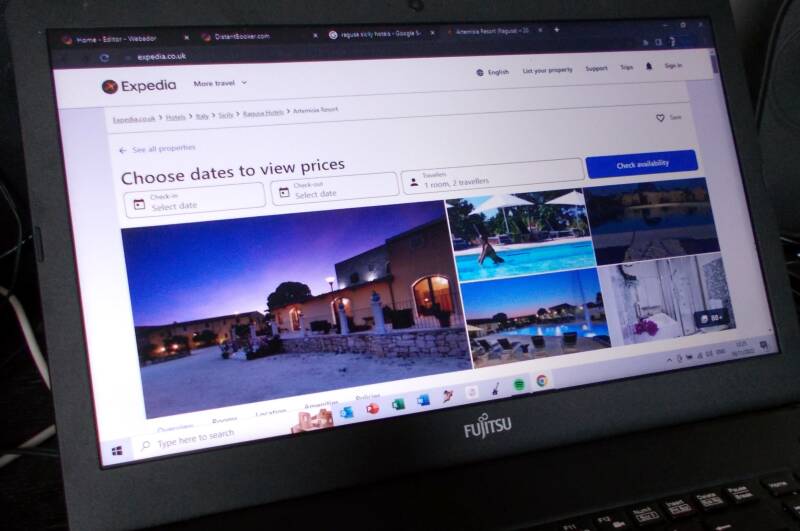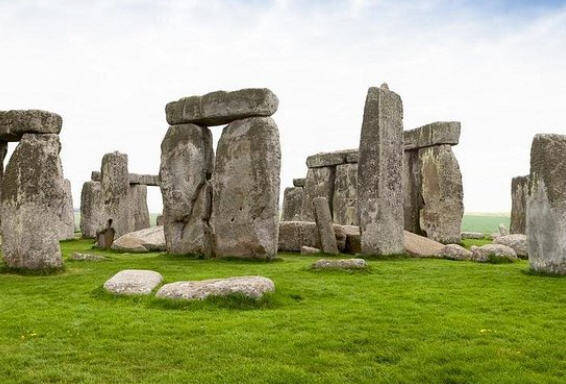The Hidden Power of Pricing ......What Hoteliers Need to Know About Rational Inattention
In an age where attention is the ultimate scarce resource, understanding how guests perceive prices is more important than ever. A recent Economist article (13 September 2025) explored a concept known as “left-digit bias”—the tendency of consumers to view £2.99 as significantly cheaper than £3.00, even though the difference is just a penny. Surprisingly, guests won’t notice the difference between £2.99 and £2.98, but they will react more strongly when the left-most digit changes.

Why does this matter to hoteliers? Because pricing isn’t just about numbers—it’s about perception. Nobel laureate Christopher Sims of Princeton developed the “rational inattention” model in 2003, which shows that people can only process limited information at a time. They use mental shortcuts, especially under time pressure—common when booking hotels, comparing reviews, and filtering options online.

For hotel pricing, this means small differences can have outsized effects. A room listed at £199 may appear significantly more attractive than one at £200, even though the value proposition is nearly identical. Guests don’t analyse every penny—they rely on quick cues to make fast decisions.

The takeaway? Be intentional with your pricing. Use thresholds that work with customer psychology, not against it. And remember, your guests are busy, distracted, and overloaded with information. Make their decisions easier—not harder—and you'll stand out in a crowded marketplace.
Digital ID cards to replace right to work checks in 2029

How many of you take on a new employee without actually checking that they’re able to work in the UK? Unless there’s a reason for you to ask for their ‘right to work visa’, most businesses do nothing.

You should be getting copies of passports for good practice and then verifying these as an absolute minimum.

From 2029, penalties of up to £40,000 can be imposed on ANY business that fails to check ANY new starter. The digital ID card announced a week ago will be that tool to use.
Our advice would be to get in the habit of requesting ID now!!
What business Do You Think You're In?
No one wakes in the morning and says, "I must sleep in one of The Lansdowne Strand's beds in Calne tonight."
Every guest arrives with a reason for being in your locality. Your hotel is part of that journey, not the whole story. They may be drawn by history, business, events, or leisure—but whatever the motivation, your property becomes the base that enables that purpose. To win the booking, you must show that you understand why they are coming and make staying with you the obvious choice.
????
So, ask yourself: does your website clearly address those motivations? Does it connect the dots between the reasons guests travel to your area and why your hotel is the street-smart place to stay? This is where independents can shine. Chains struggle to differentiate; too many independents simply copy them and disappear into the same bland messaging.
????
Theodore Levitt’s classic warning in Marketing Myopia is as relevant now as ever: industries fail when they misread what customers actually want. The UK high street proved the point—retailers thought they were selling “shops.” Customers wanted convenience, speed, and choice. Online platforms delivered; countless once-famous brands did not.
????
Hotels face the same risk. We’re not in the “room business.” Guests don’t book four walls and a mattress. They book reassurance, comfort, connection, and the chance to experience something meaningful beyond the room. If all you measure is occupancy or RevPAR, you may be looking at the wrong thing—like retailers counting footfall while sales shifted online.
????
The lesson is simple: hospitality is about experiences, both inside the hotel and in the surrounding destination. Those who embrace this truth will thrive. Those who don’t will wake up to find the market has already moved on without them.
Every Penny of Commission You Pay OTA’s is Too Much!!
On line Travel Agents (OTAs) have positioned themselves as unavoidable gatekeepers, controlling the flow of customers while charging commissions that drain operators. Hoteliers are forced to play by rules designed not to promote quality or guest experience, but to keep properties dependent on the platform.

This is why tools like Distant Booker matter. They put data back in the hands of owners and managers. By analysing client behaviour directly, hotels can craft offers, highlight unique strengths, and attract potential guests on their own websites. The goal: give browsers clear, compelling reasons to book directly—without surrendering up to 20% of revenue to an intermediary.

The industry has lived too long under this imposed “commission tax.” With the right tools, hotels can take back control, build loyalty, and keep the value of their work where it belongs—within their own business.


Download this file for more thoughts and ideas for how to make this work

No time to read? Listen while you work.
What Business Are You In?
Hidden Pricing - Rational Inattention
Value Menu Examples
Costs vs. Expectations
Forward Booking Fire Alarm
US Visitor Slow Down
Recognising Excellence - Staff Motivation
Takeaway Revolution - You Can Do Takeaways as Well!
The Power of Guest eMail Collection - Repeat Business
Turkish Cooking - 75% growth market
Work With the National Trust - Affinity Revenues
One Simple Step That Makes Guests Value Your Offers More
In hospitality, we often think the smoother the redemption process, the better. But research (Zhang et al., 2025) shows adding a tiny, symbolic step can actually boost redemption rates — even for offers as large as £200 hotel nights.
This “token effort” might be as simple as:
- Entering a promo code
- Answering one short question
Why It Works for Hotels
Self-Responsibility – Guests feel they’ve earned the deal, making it feel more legitimate and exclusive.
Behavioural Return on Time Investment – A small effort for a big saving makes guests feel clever and rewarded.
How to Apply It
Pseudo-Loading – Add a “Calculating Your Best Rate…” animation before showing the discount. This signals value.
Hold to Unlock – Ask mobile users to press and hold to activate a “Secret Rate.” Research shows more tactile actions increase desirability (Liu et al., 2023).
Promo Codes Over Instant Discounts – Instead of auto-applying 15% off, email a code. Guests using a code focus on savings, while instant discounts make them focus on cost (Jia et al., 2024).
The Key: Keep Effort Minimal
A small task boosts engagement. Too much work, however, backfires by lowering the perceived payoff. The effort should feel symbolic, not burdensome.
Takeaway: In your next promotion, give guests a tiny “unlock” moment before revealing their special rate. It can enhance the sense of reward, increase perceived value, and ultimately drive more bookings — without adding real friction to the guest journey.
Turn Local Attractions into Bookings
Here’s How to Stand Out and Get More Guests Booking Direct
Let’s be honest—running a hotel or guesthouse today is tough. With so many choices online, great rooms and good prices just aren’t enough anymore. Guests want more than a bed. They want a story, a memory, something to write home about. That’s where your local attractions come in.
Whether you’re near a castle, coastline, food market, or music festival—you’re sitting on a goldmine. But here’s the thing: if you only mention these in a “Things to Do” tab or bury them in small print, you’re missing a big trick.
Instead, make local experiences part of your offer. Talk about them on your homepage, in your emails, on social media. Show how staying with you puts guests in the perfect spot to explore. Be the friendly expert who knows the best places to eat, hidden spots to visit, and when to catch that weekend market.
Start small. Ask guests what brought them to town. Where are they going today? Use those answers to build a few simple packages—maybe an early check-in before a local event, or a weekend itinerary with your favorite coffee shop and walking trail.
And most importantly—tell the story. Share photos, write short blogs, highlight unique things guests can only do if they stay with you.

